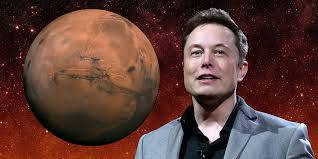The recent announcement of Musk’s plans, detailed on X, outlines a roadmap to establish human settlements on the Moon and Mars. The fundamental reasons behind this endeavor go beyond scientific exploration and delve into the survival instincts of human beings. With climate change, overpopulation, and potential asteroid threats looming large, Musk contends that becoming a multi-planetary species is essential for the long-term survival of humanity.
Colonizing the Moon is viewed as a crucial stepping stone to Mars. This lunar base would serve not only as a vital outpost for research but also as a testing ground for technologies that would be necessary for operations on Mars. By practicing sustainable living and resource management on the Moon, teams will gather invaluable data on how to thrive in the harsher Martian environment. Musk posits that establishing a foothold on both celestial bodies will “provide a backup for civilization†and foster innovation that could solve terrestrial challenges.
One of the more fascinating aspects of Musk's vision is the expansion of human consciousness through the exploration of space. Every expedition beyond our atmosphere has revealed layers of human ingenuity and capacity to adapt. By pushing the boundaries of where we can live, Musk believes we can stimulate a broader understanding of our place in the universe. This quest may inspire future generations to think critically about Earth, technology, and sustainable living, shaping new philosophies and approaches to life itself.
Moreover, the colonization of these celestial bodies raises intriguing questions about governance, society, and human interaction. Concepts of community, ethics, and collaboration will be tested in uncharted territories. How will we organize ourselves away from Earth’s established norms? Musk's vision suggests a new societal model, potentially leading to innovations in governance and social structure that reflect our evolving understanding of humanity.
However, challenges abound in the pursuit of this grand vision. Financial viability, technological hurdles, and ethical considerations regarding planetary protection are crucial factors that need to be addressed. The interdependent relationship between human exploration and environmental stewardship becomes paramount. As Musk advocates for the need to inhabit other worlds, it is imperative that our approach is responsible, ensuring we do not repeat the mistakes of the past on new frontiers.
In conclusion, Elon Musk's plan to colonize the Moon and Mars encapsulates more than just an adventurous leap into the cosmos; it is a vital strategy for ensuring humanity's survival and enhancing our understanding of existence. As we stand on the precipice of interplanetary colonization, the future holds promises that extend beyond survival—they beckon us to evolve as a species. The journey may be arduous, but like any great adventure, the potential rewards could redefine what it means to be human in an ever-expanding universe. For further insights, you can check the details on X.
This is your excerpt text. It will be limited to a certain number of lines/characters.


